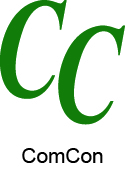How do transcriptions of ambiguous words in electronic recordings affect jurors? | Online Jury Research Update
Electronic recordings presented to jurors at trial often are accompanied by a written transcript to aid understanding of what is said. Transcription of electronic recordings is challenging even for professionally trained transcribers. The transcriptions of even highly trained professional transcribers disagree frequently and vary significantly from each other...Zhang (2022) examined how juror decision-making is affected by the way dubious words are presented in transcripts of degraded covert forensic audio recordings....

